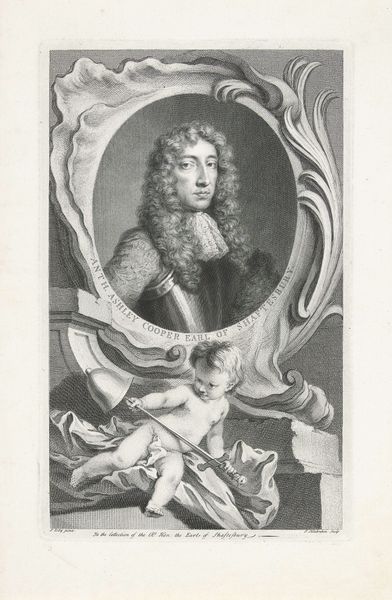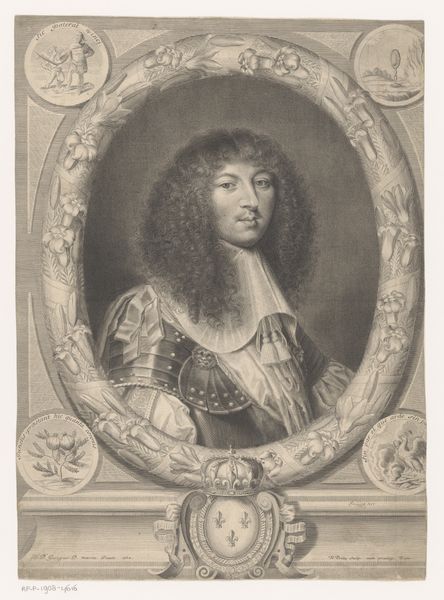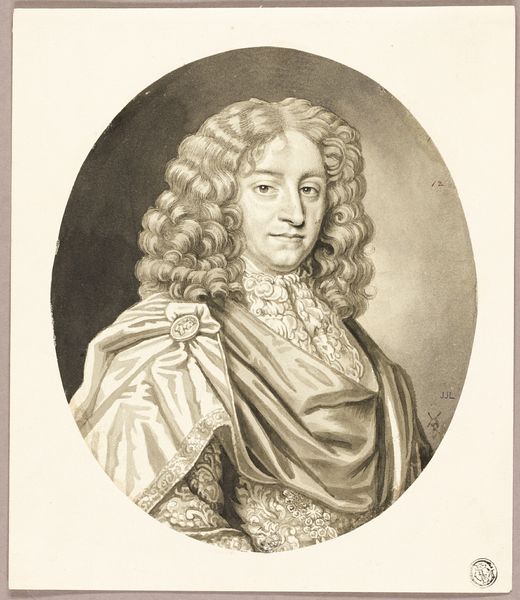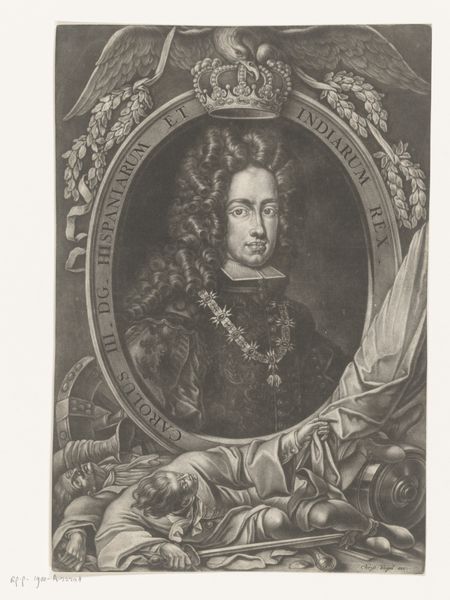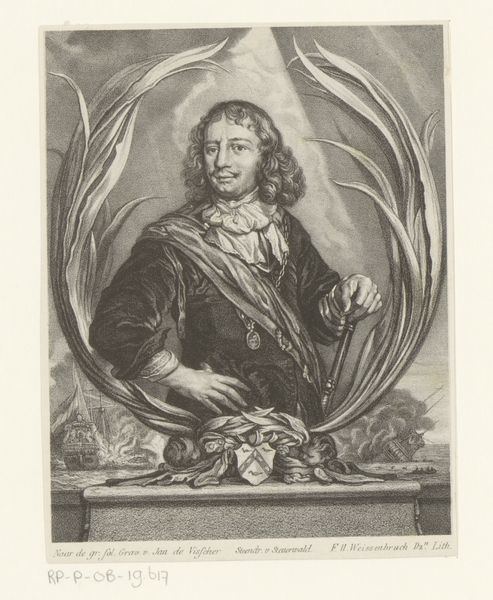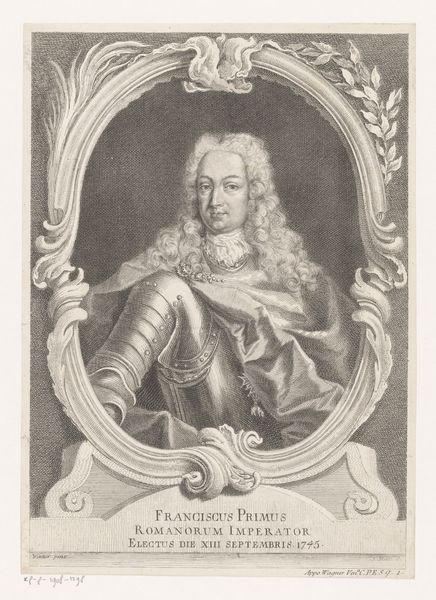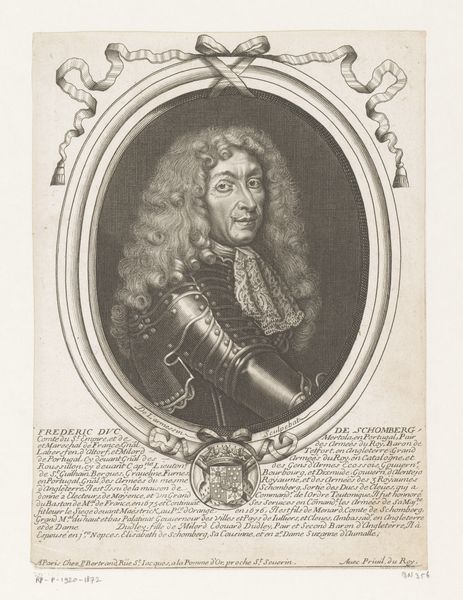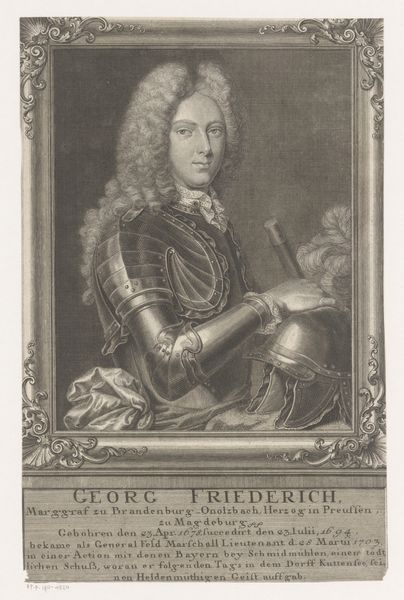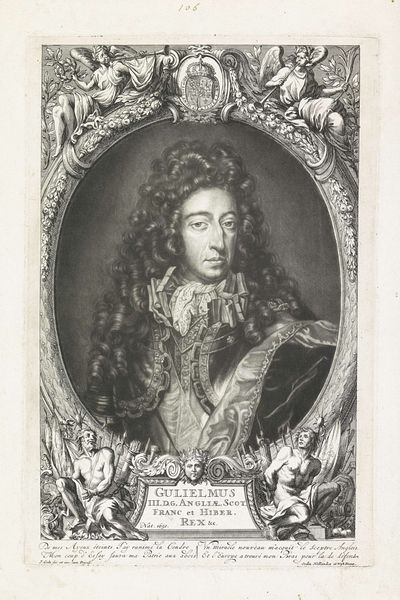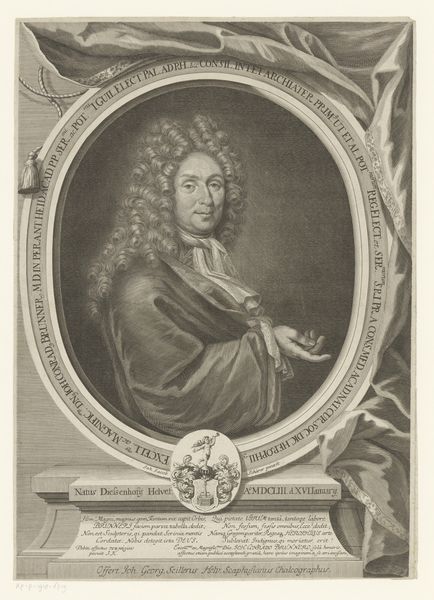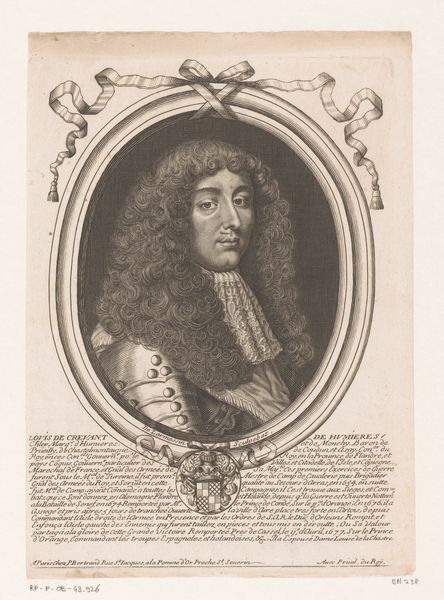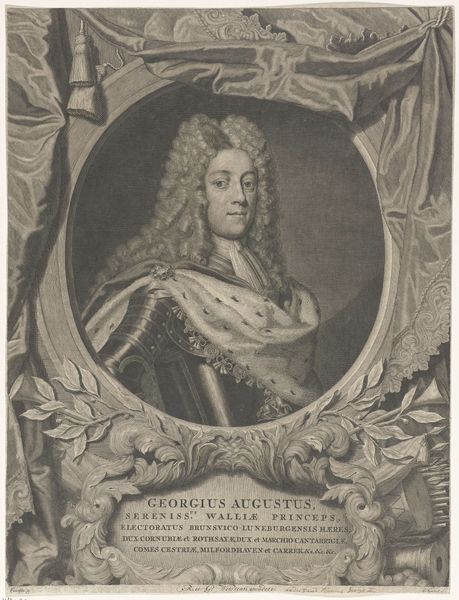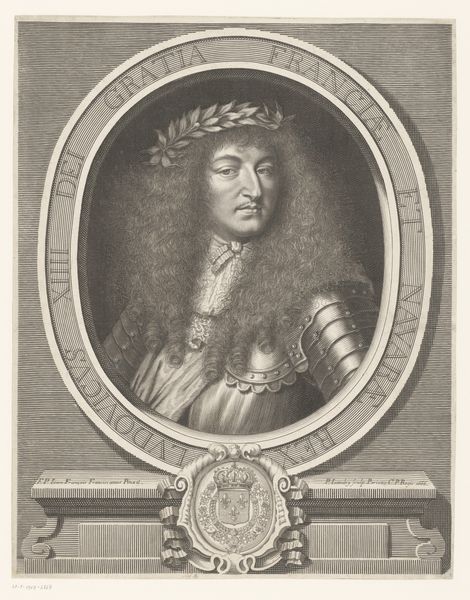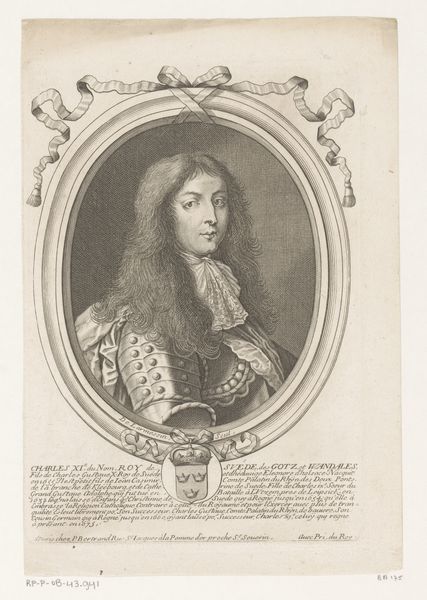
etching, engraving
#
portrait
#
baroque
#
etching
#
old engraving style
#
caricature
#
history-painting
#
engraving
Dimensions: height 369 mm, width 229 mm
Copyright: Rijks Museum: Open Domain
Editor: This is "Portrait of Anthony Ashley Cooper" from the late 17th to mid-18th century, created by Nicolas de Beauvais. It's an etching, and there's something fascinatingly stiff about the composition and details. What do you see when you look at it? Curator: I see an articulation of power mediated through very specific materials and processes. Think about the copper plate itself, sourced and prepared, and then the labor-intensive process of etching. Each line, each shadow, painstakingly created. The etching is not simply a picture; it's a manufactured object imbued with the values of its time. Editor: Manufactured? Like, mass-produced? Curator: Precisely. This wasn't unique, so think about its distribution and consumption. Who could afford such an image? This artwork functions as both portrait and a commodity. The image reproduces power but only because the etching itself involved skill, capital, and control of production, reflecting class dynamics. Editor: The baby holding the sword feels odd here, though. Curator: Yes, that detail offers an opportunity to look at iconography as labor. Who conceptualized it, how was it interpreted by the engraver, what political or social role did it play in its wide circulation? This wasn't just about aesthetics; it was about making and meaning intertwined. How does it change your view knowing it's an artifact from a complex economic system? Editor: I guess it's less about just looking at a pretty picture, and more about thinking about all the work that went into creating that picture, and who that work benefited! Thanks! Curator: Exactly! It highlights how seemingly simple images like these can reveal the power dynamics embedded within their very creation.
Comments
No comments
Be the first to comment and join the conversation on the ultimate creative platform.
